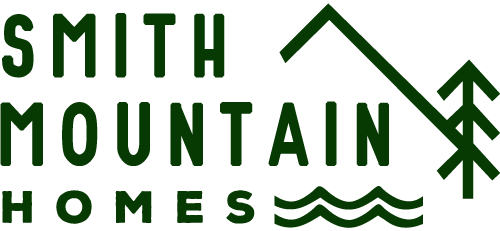 Many buyers wonder whether they will be able to qualify for a mortgage for a second home here. Some wish they could access investment funds they could use for the property at the lake. Because I have worked with clients and done some investing myself over the years, I have learned strategies that can assist buyers in finding a second home. One of these is the Tax Deferred Exchange for properties.
Many buyers wonder whether they will be able to qualify for a mortgage for a second home here. Some wish they could access investment funds they could use for the property at the lake. Because I have worked with clients and done some investing myself over the years, I have learned strategies that can assist buyers in finding a second home. One of these is the Tax Deferred Exchange for properties.
Please note that I am not a tax advisor or licensed mortgage professional. The information discussed below is intended only to raise issues that you need to pursue with the assistance of licensed professionals.
The Internal Revenue Service has a provision that allows investment properties to be sold and exchanged for new property without taxation on the gains from the exchanged property. This is called an IRS Section 1031 Exchange and is also referred to as a like-kind exchange. Though the name implies a swap of properties with another property owner, the exchange is actually between your current investment property (referred to as the relinquished property) and a new one (the replacement property). While it is rare to find two property owners who wish to swap, I was involved in a swap of waterfront lots like this here last year, and the owners enjoyed these same tax benefits.
Let’s assume you own an investment property in which you originally invested $200,000 and is now worth $600,000. When you sell it, you may pay tax on the capital gain, possibly 15% of $400,000, or $60,000. This would leave you with proceeds of $540,000 to purchase a new property (assuming there is no debt). If you sell this property and purchase another property through a 1031 Exchange, however, you would have the entire $600,000 available to purchase the new property. The tax on the gain would be deferred until the sale of that property in the future. The process could be repeated, however, and the gain could be deferred indefinitely until the property is passed to your heirs. As I understand it, your heirs will get a new basis in the property, and the accumulated gains during your lifetime may never be taxed! Please consult an attorney and tax advisor to confirm how this may work in your situation.
Another possibility is for you to purchase an investment property through a 1031 Exchange and eventually (later) convert this property to your primary residence. In this case, you could enjoy a gain of up to $500,000 tax-free on your residence, and switch the investment property, which was purchased with previously untaxed funds, over to your primary residence as well. Then this residence can also be sold with untaxed gains up to $500,000, according to tax accountants! Your original intent in the purchase of the investment property must be to use it for an investment purpose such as a vacation or long-term rental.
The like-kind requirement in a tax-deferred exchange is a frequently misunderstood element of this process. Some investors believe that the rules are strict, and one must swap a condo for a condo, or raw land for raw land. The rules, however, are broader than that according to most experts. You should be able to trade any investment real estate for any other. So you could sell an apartment building and replace it with a waterfront lot, or a condo for a waterfront home.
You should be aware that a 1031 Exchange requires an intermediary to handle the funds you cannot touch the proceeds at all. You must also name several potential replacement properties within 45 days, and close on a property(s) within 180 days. I work with an expert intermediary here in Virginia to whom I refer my clients.
I once had a client who was selling an investment property and wanted to buy a waterfront lot and build an investment home with the 1031 proceeds. Since the builder could not guarantee that the home would be finished and closed within 180 days, he hesitated. Through research, we learned that this was possible, however, through a somewhat complex intermediate step with a third-party set-up to take title to the land during the building process. This is an issue that should be discussed with a knowledgeable 1031 intermediary.
What if circumstances demand that you take title to a new property before the sale of your first property? Though this was not originally provided for in the 1031 regulations, this possibility exists through IRS guidelines that were issued later. It is called a Reverse Exchange and is more costly and difficult than a normal exchange. If tax savings are in the tens of thousands of dollars, however, it is often worth pursuing.
Since I think it is unwise for me to delve further into tax advice, I would like to refer you to an excellent book on this subject: How a Second Home Can Be Your Best Investment, by Tom Kelly and John Tuccillo (McGraw Hill, 2004). You can order this book from Amazon.com. They do a great job with tax avoidance strategies as well as goal planning to make your second home dream a reality.


